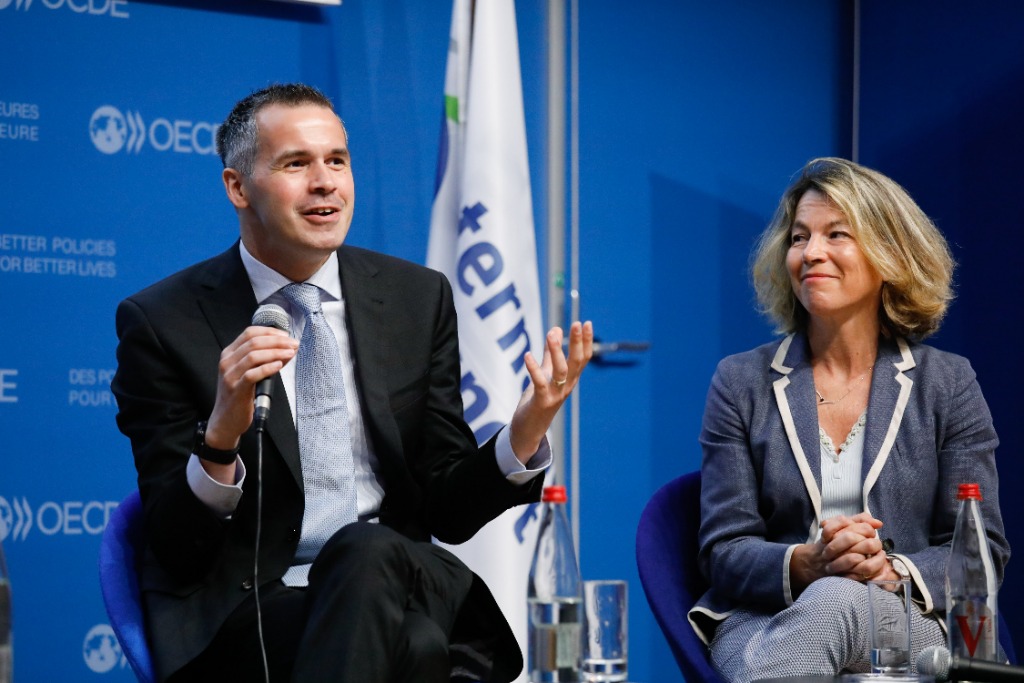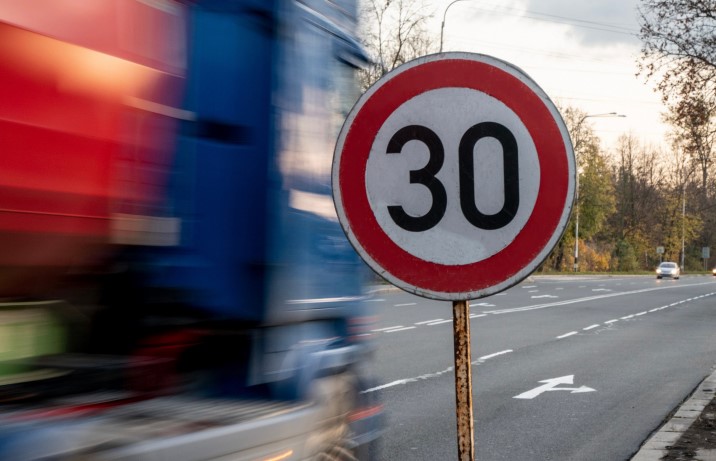iRAP was pleased to participate in today’s ITF Day @ OECD in Paris, presenting to OECD Ambassadors and staff on financing road safety investments.
iRAP Global Technical Director James Bradford presented on the evidence base for results-based financing, Star Rating Policy Targets, safety bonds and the UK Road Safety Fund.
The programme included sessions on:
- Safe roads: Are zero fatalities possible?;
- Enroute to COP27: Decarbonising transport;
- Mind the (gender) gap! What lessons from mainstreaming gender for transport policy?; and
- How transport enables inclusive societies.
See the detailed event programme here.

James Bradford, iRAP and Véronique Feypell, ITF, “Safer roads: Are zero fatalities possible?” panel
The latest ITF Safe System in Action Report was launched at the event, setting out the expert findings of the “Implementing the Safe System” Working Group, led jointly by the ITF and World Bank.
The report notes that every city, region and country should aim to develop projects and programmes that reduce fatalities and serious injuries. However, the scarcity of financial resources increases the need for proactive and evidence-based programmes. Tools that can assist in designing such programmes include safety-analysis software, safety audits and inspections, the resources provided by the International Road Assessment Programme, SPIs and Safe System Assessments.
Science has shown that implementing a Safe System approach is the most effective and efficient way to improve road safety. However, introducing it is not easy, especially in low- and middle-income countries. While there are success stories, such as the Netherlands and Sweden, applying their methods to other countries is far from easy. It requires tailor-made adjustments to the specific socio-economic circumstances of each country, city or region where the approach is applied.
The Working Group has developed a theoretical framework to guide those seeking to implement the Safe System approach. The framework describes how to improve the safety of roads, vehicles, road-user behaviour and other road-safety pillars through the various key components of a Safe System. Experts analysed road-safety activities and interventions in 17 case studies from all continents with this framework in mind. Some were successful; others showed that the road to a Safe System is not always well paved.
Some of the case studies shared in the report feature the work of RAP partners including:
- Highway improvements in Karnataka State, India
- The Speed Management Programme in Bogotá, Colombia
- Evaluating municipal road safety performance indicators in Korea
- The Slow Zones, Safe Zones programme in Pleiku City, Vietnam (featuring Star Rating for Schools)
The International Transport Forum (ITF) acts as a global transport policy think tank and organises an invitation-only Summit each year bringing together more than 1,400 Transport Ministers, business leaders, researchers and civil society from 63 member countries and guest countries.
For more information
Article images source: ITF


















